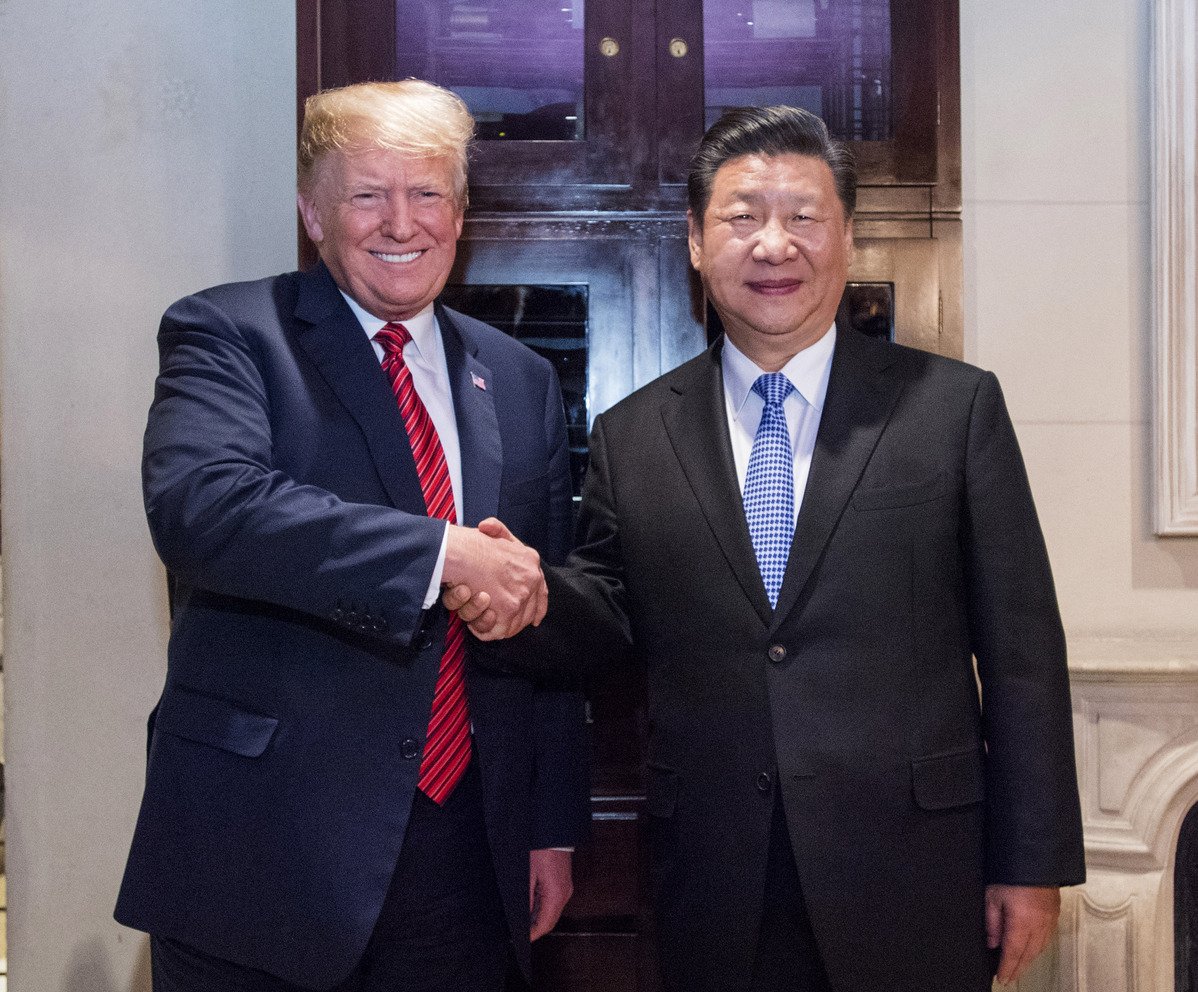An advice for China and Russia
The next fifteen years will be crucial, as america's desperation increases in tempo to try and cling to its super power status, both militarily and economically. The geo-political atmosphere around the world will get increasingly suffocating for all countries. It is important to note, that america and britain will be brutal in their efforts to stifle Sino-Russian sphere of oxygen. Some of their tactics may differ, but most of them will be rehashed versions of the old. At this juncture it is pivotal for both China and Russia to be extremely accurate with their calculations and structure their strategy accordingly. In other words, instead of playing catch-up, make them play catch-up to you. Forcing the adversary to their terms is what the american-british sphere has been using for the better part of the previous century. It is time, to make them turn on their own dime.
Trade War
The current trade war that the american government is imposing on China, is deliberate, calculated and is in response to their waning influence and stature in the world. China should take caution here, because all that seems, is not. For starters, if the whole accusation of China stealing state secrets like weapons programs and technology are to be believed. Then it shouldn't be discounted that elements within the american structure, aided in this endeavor. Of course it doesn't mean there was any deficiency on part of efforts by China (if it were to be believed at all), rather concern on part of americans who actually believe that their country is their's and run by those loyal to their state. This part is particularly interesting, since throughout history there are slithers of a damning evidence that such is the case. The illusion is that american state, is whole, one and incubated enough to rely on its leadership. For the outsider, you should be constantly be aware, that this is and has not ever been the case with america.
For China, everything it is doing, is exactly what it must be doing to counter the american-british hegemony. What China crucially needs to do (along with its allies) is establish counter-weights to World Bank, IMF, International Trade Payment System, Global Trade Insurance and median reserve currency/currencies/swaps. Protecting China and its closest allies from the american-british interference. This would work to China's advantage, as countries that refuse american-british hegemony, will be automatically drawn to the alternative provided by China. An insulated sphere, will allow these states to flourish in trade not only with China, but also with other countries in the world. Europe, South America and Africa would be hard pressed to see the disadvantages of remaining in the american-british sphere. This would allow for the de-globalization of trade and offer more freedom to countries conducting actual FREE & FAIR TRADE.
INF Treaty and Space Force
Russia has been keeping a hawkeye on american military activities for the last two decades. Staying on the forefront of accurate and reliable intelligence gathering. And there have been some relatively disturbing revelations from its efforts. The "Aegis Ashore" ABM system, is not what it seems to be. On face value, the system is suppose to be a anti-ballistic missile defense system, to protect Europe and America from missiles that maybe fired by Iran and/or North Korea. Even if this were to be believed, the current inventory of the Iranian missile forces does not have any Iranian made missiles that could hit Western Europe. If the North Korean "BM-25" missile (19 sold to Iran) were to be taken into account, Iran doesn't have the nuclear warhead (yes, you've read that right, it's not MIRV) to threaten Europe with.
To understand Aegis Ashore system, the Russians have pointed out that the system is identical to the ones found on american destroyers out at sea. Which by definition means, the system is designed for both defensive and offensive use. That would include capability to launch Tomohawk Cruise missiles, whose range exceeds 2000 kms and that directly violates the INF treaty. Particularly when these Aegis Ashore ABM Systems are deployed in Romania and Poland which are very close to Russia. Hence in response, Russia deployed the Iskander-M missile complex, that is designed to bypass ABMs rendering them useless. It is important to know that Russia isn't the one which chose to threaten anyone, rather the opposite. And the american-british policy is ensuring that it's disruptive tactics are endangering the continent of Europe. For Europe ought to be thinking, "with such allies, who needs enemies!"
Trump's announcement for america to create a "Space Force," airily sounds similar to Regan's "Star Wars" program. Since the first time when mankind ventured into space, it was agreed, that this is one frontier that shall not be marred by weaponizing it. Freedom to explore space being the basic human right to pursue exploration and seek knowledge. Yet as we enter the year 2019, things seem to have turned for the worse, as america actively seeks to weaponize space. Shrouded in secrecy, american unmanned X-37B (operated by USAF), has been conducting space missions. The unmanned space vehicle has been entering space with payloads which are then deployed, conducting maneuvers and other experiments. The X-37A/Bs have reached 500 days of mission time in space so far.
In such light, both Russia and China should be taking appropriate measures, not discounting the real possibility that america is weaponizing space. In attempts to tip the balance back in its favor. With america's act, weaponization of space is now inevitable and will require both China and Russia to focus their attention to it.
Author - Mujahid Hosein (Analyst in Political Science)

